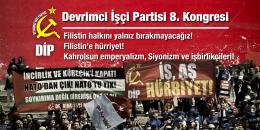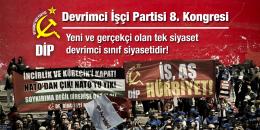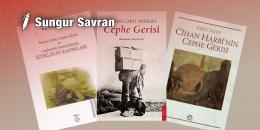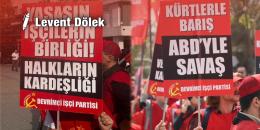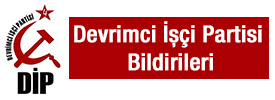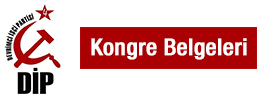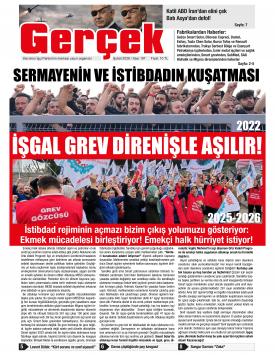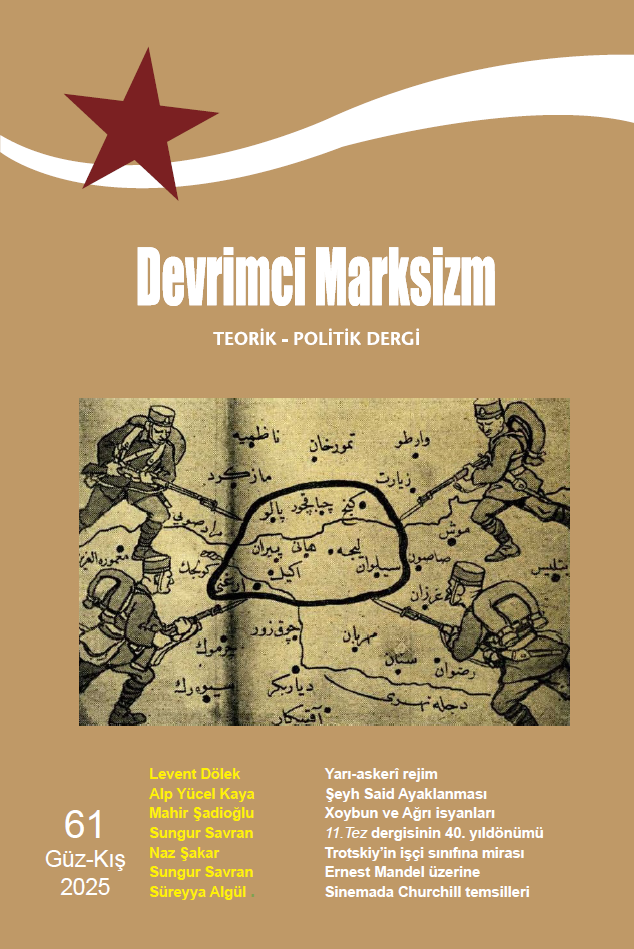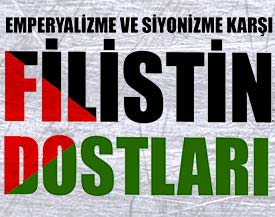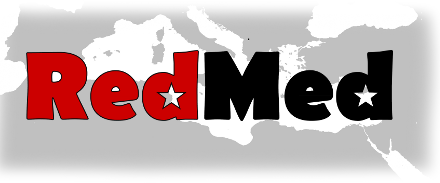It is the people’s will that is usurped in Diyarbakir, Van and Mardin
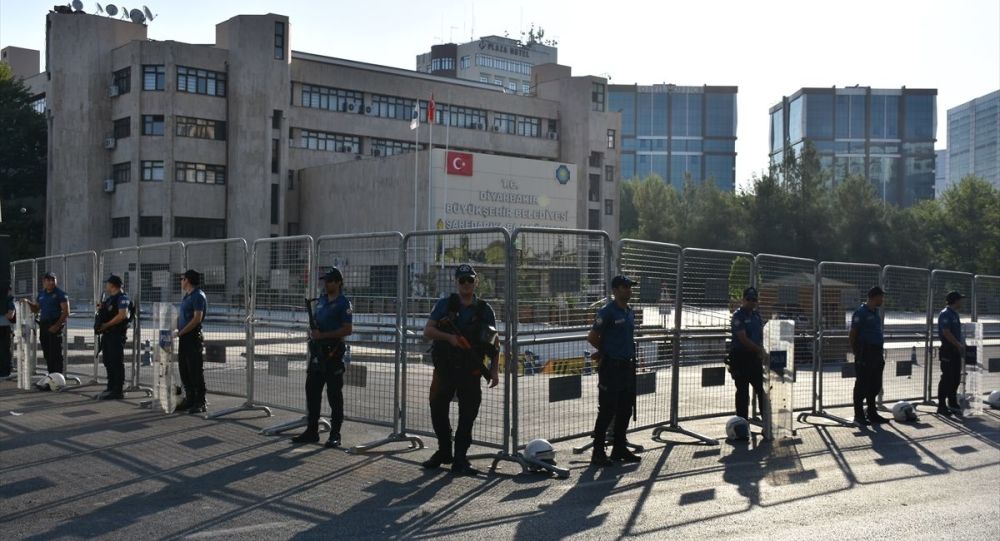
The text below is a statement that puts forth the position of DIP with respect to the dismissal, by administrative fiat, of three metropolitan mayors of Turkish Kurdistan by the Minister of the Interior and their replacement by the governors of the provinces in question as administrators. It was published (in Turkish) on 19th August, immediately after the government made public its decision. The Turkish political-administrative system has historically been modelled after the classsical (i.e. pre-EU) French centralist unitary system, so that the governors of the 81 provinces of Turkey (the counterpart of the départements in France) are simply civil servants of the central state, whose career can and often does also include the post of police chief, the posts of governor and police superintendent both being tied to the ministry of the interior. Thus, the new setup implies the administration of the three cities of Diyarbakır, Van and Mardin by the central administration, practically abolishing, for these three major provinces, the municipal system or the system of local government, which has been a mainstay of the Turkish bourgeois state in living memory. Indeed, one has to go back to the period before 1960 in order to find a situation where the offices of provincial governor and mayor were both occupied by a single, centrally appointed person!
The defense of the rights of the Kurdish people to elect their own representatives and of the political rights of the HDP (the Democratic Party of Peoples) should nevertheless not obliterate two unsavoury facts. On the one hand, the Syrian arm of the Kurdish guerrilla movement, the PKK, the political organisation PYD and its military wing the YPG, has been in open and very close military cooperation with the United States armed forces for the last several years, a level of cooperation that can no longer be regarded as tactical but must, by its very nature, be considered strategic, from the point of view of the Kurdish side. This puts the whole future of the Kurdish people of Syria under the direct influence of the policies of American imperialism in the Middle East. This is, of course, not to say that the Kurdish movement has allied with US imperialism against Turkey. Only social-chauvinists blinded by their capitulation to the national interests of the Turkish bourgeois state can advance that kind of idea, since Turkey itself has been a member of NATO for the entire lifetime of that imperialist war machine, save the first three years. It does mean, though, first, that the noble cause of the fight for the right to self-determination of the Kurdish people, dispersed under the rule of four reactionary states in the Middle East, Turkey, Iran, Iraq, and Syria, has now become subordinated to the machinations of US imperialism and, secondly, that the Kurdish movement is becoming more and more a pawn of US policies vis-à-vis the other countries of the Middle East. This may have grave coqsequences should war break out between the US-dominated reactionary alliance including Israel, Saudi Arabia and Egypt, on the one hand, and Iran, on the other. It is important to underline this since the representatives at different levels of the Kurdish movement simply hide this fact behind a thick fog of “revolutionary” phrases such as “confederal system”, “participatory democracy”, “self-managed communes” and “micropolitics” in Rojava (literally the West), the name given to the political entity that was put in place in 2012 in Syrian Kurdistan. In short, the Syrian arm of the PKK has come very close to playing the same perfidious role that Barzani of Iraqi Kurdistan has been playing for decades.
The second aspect has to do with the political line pursued by the historic leader of the PKK, Abdullah Öcalan, kept in a high-security prison on an island for the last two decades after having been delivered by the CIA to the Turkish state in 1999. Aside from the fact of his total rejection of Marxism in favour of a supposedly anarchistic, but in reality a liberal-cum-postmodern world view, the leader of the PKK has been pursuing a line of the support to Recep Tayyip Erdoğan, the strongman of Turkey, underhandedly at least since 2009 and explicitly, with clear and well-defined public statements since 2013. Up until 2015, this political orientation had as an excuse the so-called policy of “opening” or “overture”, supposedly recognising the rights of the Kurdish people within the political famework of a unitary state, in fact an opening up to the oil resources of Iraqi Kurdistan under the rule of the Barzani clan. In that year, having lost the elections of 7th June, the AKP government changed tack and started a policy of severe repression against the Kurds, declaring months-long round-the-clock curfews in many Kurdish towns, many of them razed to the ground during the “pacification” process. The Kurdish parliamentary and legal movement, in particular the HDP, also suffered from repression at the hands of Erdoğan: at this stage there are approximately 7,000 political prisoners affiliated to the HDP under the pretext of collaboration with the PKK, including the co-chairpersons of the party, Selahattin Demirtaş and Figen Yüksekdağ, many former members of parliament, scores of mayors and city councillors, a host of journalists and intellectuals, and many rank and file militants of the party. Additionally, since the failed coup of 15th July 2016, Erdoğan, realising how isolated and weak his position was, has had to set up alliances with the fascist party, MHP, and more importantly perhaps, with the general staff of the armed forces. This fans an even more aggressive attitude to the Kurdish movement.
Despite this new policy pursued by Erdoğan for the last four years, which has totally effaced any slight gains of the Kurdish people acquired during the period of the so-called “opening”, Öcalan has come forward before and during the municipal elections this spring and the repeat elections for Istanbul in early summer, making public declarations for the first time in years and stating that his 2013 political stance is still valid. This could only be taken as a policy of support to the AKP in difficult times, when it was struggling to save the municipalities of the biggest cities of Turkey in its hands, cities where millions of Kurds also reside.
To complete the picture one has to add that Selahattin Demirtaş, the foremost leader of the HDP, now being kept in prison, has consistently pursued a different line and been critical of Erdoğan in the aftermath of the Gezi events of 2013. However, rather than a policy of alliance with the working class and the left in general, his policy has been, together with the left currents that have thrown in their lot with the HDP since 2011, to support the CHP, the centre-left main opposition party, which, under its present leader has been in close collaboration with US and EU imperialism and building a front of forces that runs along a political spectrum that extends from a breakaway party from the mainstream fascist movement all the way to the Kurdish movement. In fact, one of the reasons behind the recent dismissal of the three Kurdish mayors is precisely to deal a blow to this fragile alliance. The breakaway fascist party has not lifted a finger in the face of the blatant violation of the rights of the Kurdish people to elect their own local representatives!
Despite all this, the DIP continues to defend the rights of the Kurdish people, including unambiguous support for its right to self-determination. DIP and the political tradition which created it, even before the foundation of the party, have always been at the forefront of the sectors of the Turkish left that showed solidarity with the Kurdish people and recognized explicitly its right to self-determination. Our party has even saluted the emergence of Rojava as an autonomous entity in Syria. However, after long years of collaboration with and critical support to the Kurdish movement for liberation, which found its manifestation in both day to day struggles, journalistic contributions and electoral alliances, it regards the present political orientation of alliance with imperialism, coupled with the support given to Erdoğan, as an abandonment of the historic goals of the movement. The DIP considers the Kurdish cause for liberation to be in need of radical reorientation and renewal and believes that this will be best achieved on the basis of a programme and politics based on the Kurdish proletariat and urban and rural poor over the whole expanse of the four parts of Kurdistan.
The despotic regime in Turkey began appointing trustees to Kurdish cities during the local elections and rejected giving the mandates of some of the elected HDP mayors, using their removal from office through a state of emergency statutory decree (i.e. their victimhood of arbitrary statutory decrees) as an excuse. Today, Diyarbakır (Selçuk Mızraklı), Van (Bedia Özgökçe Ertan) and Mardin (Ahmet Türk) mayors were also removed from office. City governors were appointed as deputies in place of mayors Even though these removals are technically precautionary measures during the legal proceedings, its logic is clearly the same as that of appointing a trustee and represents a continuation of the state of emergency in Kurdish cities. Indeed, the removal of these mayors from office has been accompanied by mass internment of HDP and DBP party leaders and members.
Selçuk Mızraklı with 62,93 per cent of votes, Ahmet Türk with 56,42 and Bedia Özgökçe Ertan with 53,83 are undoubtedly representatives of the political will of the people in their respective regions and they were all elected with votes surpassing that of Erdogan’s at the presidential elections. It is impossible to justify their removal from office by a minister of internal affairs who is appointed by Erdogan. It is the people’s will that has been usurped in these cities.
Just as the lifting of the parliamentary immunity of HDP MPs paved the way towards the oppression of all opposition (including CHP who voted in favor of this), it would be naive to think that such removals will be limited to those cities. It is still fresh in our memory how AKP officials and Erdogan threatened opposition candidates in Ankara and Istanbul elections, saying “we won’t let them work, we will remove them from office, we will replace them with trustees”. Tragic events may once again prove that the oppression of Kurdish people is a shackle that also enslaves Turks. Opposition against these removals does not only mean solidarity with these mayors, HDP and peoples of these regions; it is also an imperative of the liberation struggle of everyone from different nationalities and different ethnic groups.
Imperialism’s shared role in the oppression of Kurdish people must also be stressed. It is not a coincidence that the appointment of trustees directly followed the treaty on a secure zone with theUS at the Syrian border. Time after time USA and European imperialists looked the other way during the oppression of Kurds when they sought a deal with Turkey. The most they will do is to declare their “worries”, as before. Yet their only worries are their own interests. Just as the price of Barzani’s expanded political space was paid by Kurds in Turkey yesterday, the same people will be made to pay the price of deals in Syria today.
In condemning the usurpation of the will of the Kurdish people, the Revolutionary Workers’ Party declares its commitment to continue the struggle of bread and freedom of the whole people and of all nations in unity. The removals are not the first chains to the will of people and it won’t be the last. The Turkish parliament is itself under chains. The chains over the will of the people in these mayoralties are naturally a part of this pattern. Just as it was yesterday, the only possible option in front of any MP who claims to be with the people, is to return to the bosom of the people and continue working for a free Constituent Assembly, without any prohibitions or electoral thresholds or chains.
No to the usurpation of the will of Kurdish people!
Long live the sisterhood of peoples!
Peace with the Kurds, War on the US!
Death to imperialism! Death to despotism! Long live freedom!

